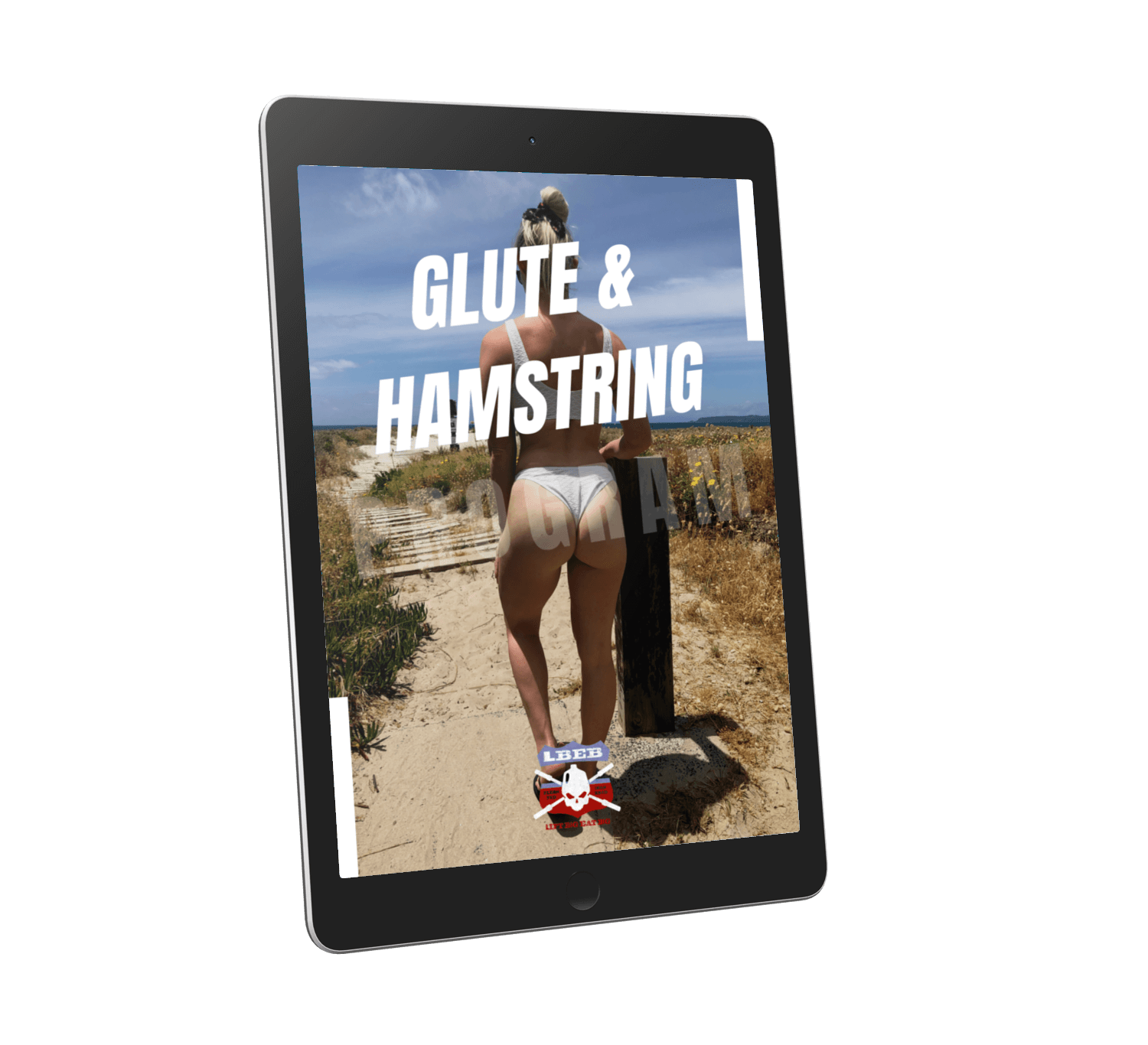As with all exciting things we start, we can become overzealous. Setting a goal of doing something every day seems smart and doable in the moment of peak motivation. But in retrospect, how often have you stuck to something you said you’d do every day? Would training glutes every day be different?
You can train your glutes every day, but you shouldn’t if your goal is to build bigger and stronger glutes. Instead, 2-3 times a week is a better option depending on your training age.
But doesn’t training more mean more gains? And if you were to train your glutes every day, how would you do it?
Table of Contents
Can You Train Glutes Every Day?
You can train glutes every day. However, it may not be in your best interest.
One reason you might want to train glutes every day is to increase training frequency. Initially, it was theorized more frequent muscle protein synthesis stimuli (stimulating the building of new muscle) would lead to better gains [2].
But that isn’t the case, and the advantage of higher frequency training comes from increased training volume. For example, when the volume is equated between different training frequencies (e.g., 3 vs. 6 times per week), there is no meaningful impact on muscle growth [3].

But when volume is not equated (training more days equals more volume), training a muscle group five times per week has shown to be superior to a once-per-week bro split because of the greater volume [4].
The issue with training the glutes every day is we must rest to allow muscle-building processes to take place. Further, training your glutes daily can lead to sub-par training due to soreness and fatigue.
You are likely to perform more volume at higher intensities by having rest days. This means greater mechanical tension, the key mechanism for gaining muscle [1].
Further, there is a large range of individual responses to training frequency. For example, 31% of subjects saw more significant muscle growth in a 5x-a-week protocol, whereas 37% saw better gains in a 2-3x-a-week protocol [4].
Should You Train Glutes Every Day?

While you can train glutes every day, the next question to ask yourself is, should you? If your goal is to get a bigger butt or strengthen the hips, both goals require rest.
When targeting a muscle group for growth, the goal is to work the muscle through a full range of motion and accumulate volume over an extended period. Training the glutes every day will spike the accumulated volume quickly, potentially leading to injury, especially if you’re not accustomed to volume.
To train the glutes every day sensibly, you’d need to alternate heavy and light days. Or pick 2 days in the week which are heavy and high volume. The rest of the days are light-pump exercises.
Can You Train Your Glutes 2 Days In A Row?
You can train your glutes 2 days in a row. Olympic Weightlifters will squat, pull, snatch, and clean most days of the week and sometimes twice a day. All of these movements work the glutes to varying degrees.
And depending on your schedule, you may be forced to train two days in a row as those are your only days to train—for example, Saturday and Sunday.
If you squat on day 1 and deadlift on day 2, you’re already training the glutes in this fashion. However, if you’re doing targeted glute training with more volume, you may perform heavier compound glute exercises on day 1, such as:
- Hip Thrusts
- Deep Squats
- Romanian Deadlifts
- KB Swings
- Front Foot Elevated Reverse Lunge
On day 2, you may take it more manageable and perform exercises such as:
- Hip External Rotation
- Frog Pumps
- Single-Leg Glute Bridges
This way, you alternate a heavy and light day.
How Often Should You Train Your Glutes For Growth?
How often you train your glutes for growth will depend on your schedule. If you perform a 3 times per week full body split, you are likely hitting the glutes indirectly each day. You can add 1 or 2 glute exercises to finish them off within the workout.
However, if you’re using a physique priority training split like an upper/lower or push pull legs split, then hitting the glutes twice a week is typical. In my opinion, twice a week of glute training is an excellent place to start for bigger glutes.
More advanced trainees can push to three times per week using a leg and glute specialization program like the Tree Trunk Leg Specialization Program.
Summary
Training your glutes every day can be counterproductive. You want to rest to hit high-quality sessions to perform more volume at higher intensities. Further, more rarely means better, and you’re better off training the glutes hard once a week than going through the motions every day.
Grow Enormous Legs That Won’t Fit Your Jeans
A leg specialization program to bust through muscle growth plateaus and finally throw away those skinny jeans.
References
1. Schoenfeld, B. J. (2010). The mechanisms of muscle hypertrophy and their application to resistance training. The Journal of Strength & Conditioning Research, 24(10), 2857-2872.
2. Dankel, S. J., Mattocks, K. T., Jessee, M. B., Buckner, S. L., Mouser, J. G., Counts, B. R., … & Loenneke, J. P. (2017). Frequency: the overlooked resistance training variable for inducing muscle hypertrophy?. Sports Medicine, 47(5), 799-805.
3. Schoenfeld, B. J., Grgic, J., & Krieger, J. (2019). How many times per week should a muscle be trained to maximize muscle hypertrophy? A systematic review and meta-analysis of studies examining the effects of resistance training frequency. Journal of sports sciences, 37(11), 1286-1295.
4. Damas, F., Barcelos, C., Nóbrega, S. R., Ugrinowitsch, C., Lixandrão, M. E., d Santos, L. M., … & Libardi, C. A. (2019). Individual muscle hypertrophy and strength responses to high vs. low resistance training frequencies. The Journal of Strength & Conditioning Research, 33(4), 897-901.

